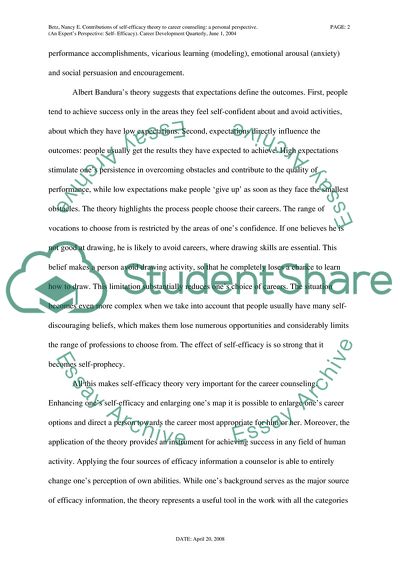Cite this document
(“Self-efficacy as an Important Criterion of Success Article”, n.d.)
Retrieved from https://studentshare.org/psychology/1545997-article-related-to-career-counseling
Retrieved from https://studentshare.org/psychology/1545997-article-related-to-career-counseling
(Self-Efficacy As an Important Criterion of Success Article)
https://studentshare.org/psychology/1545997-article-related-to-career-counseling.
https://studentshare.org/psychology/1545997-article-related-to-career-counseling.
“Self-Efficacy As an Important Criterion of Success Article”, n.d. https://studentshare.org/psychology/1545997-article-related-to-career-counseling.


